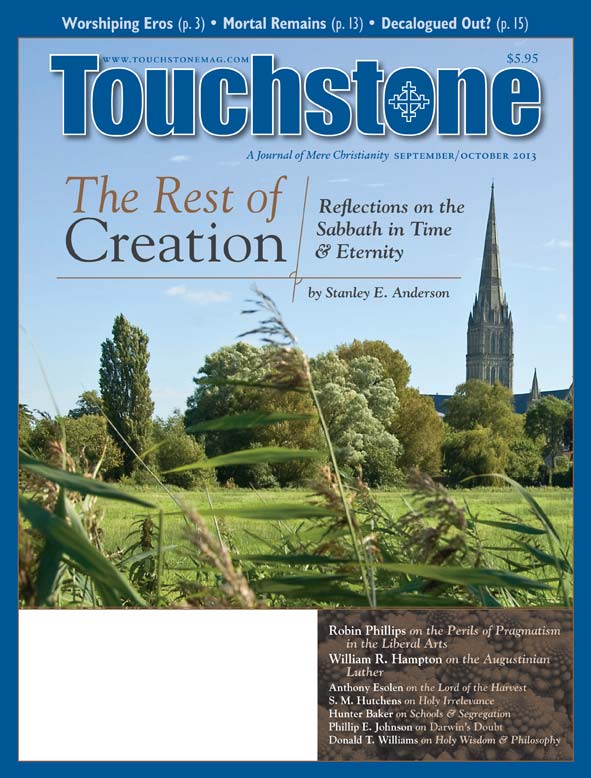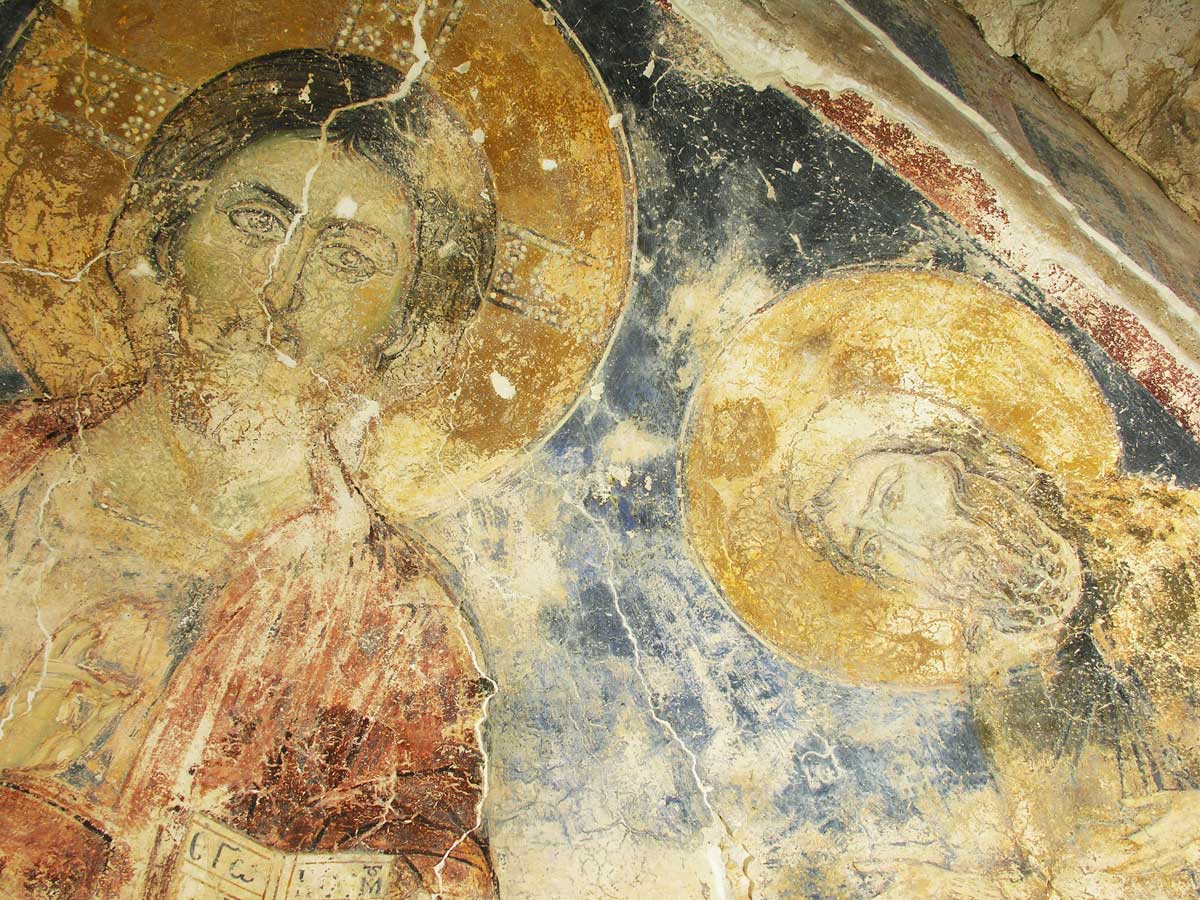God Save the Queen
A People of One Book: The Bible and the Victorians
by Timothy Larson
Oxford University Press, 2012
(336 pages, $35.00, paperback)
reviewed by Louis Markos
One of the things that struck me the first time I read Augustine's Confessions is how thoroughly saturated the book is with quotes from the Psalms. It's not that Augustine uses the quotes as proof texts, or even as examples to illustrate his points. The quotes are there because Augustine clearly had most of the Psalter stored in his memory, and the verses flowed naturally—perhaps even unconsciously—out of his head.
I was happy to learn from Timothy Larsen's A People of One Book: The Bible and the Victorians that such a propensity for seeing the world through a biblical lens persisted into nineteenth-century England. Many of the key thinkers and shapers of the Victorian era, Larsen argues, were deeply grounded in the stories, images, and themes of the Bible. Through careful reference to a prodigious amount of primary material—both published works and private correspondence and diaries—Larsen demonstrates that Victorian writers of every religious (and non-religious) persuasion consistently expressed their ideas, passions, and personal biographies through the words of Scripture.
In addition to steeping himself in the actual writings of his subjects, Larsen, McManis Professor of Christian Thought at Wheaton College, has read widely in the biographical and critical work of his fellow historians. Alas, what he discovered by comparing and contrasting the primary and secondary material makes an all-too-familiar story: many academic historians have downplayed, overlooked, or even obscured the centrality of the Bible not only to Evangelical writers, but also to Catholic, Anglo-Catholic, Quaker, liberal Protestant, Unitarian, agnostic, and atheist writers.
Pusey's Vision
In his opening chapter, Larsen explores the work of E. B. Pusey, one of the main architects of the Oxford Movement, which attempted to move the Church of England closer to the liturgical practices of the Catholic Church. As an English professor who specializes in the nineteenth century, I expected to encounter orthodox (Nicene) theology in Pusey's writings, but I did not expect to find them so deeply grounded in a literal, expository reading of the Bible. Pusey's sacramental vision did not exist alongside the Bible; it was firmly founded in and upon it.
Indeed, while he argued for a return to older liturgical practices, Pusey also devoted considerable time and energy to writing biblical commentaries, including one on the book of Daniel. In sharp contrast to the German higher critics, Pusey, working from his thorough knowledge of biblical languages and textual criticism, vigorously defended the traditional date of Daniel. Alas, his reward for boldly exposing the unscientific presuppositions of the higher critics (in particular, their a priori rejection of prophecy and miracles) was to be labeled an obscurantist.
Reason for Pause
Larsen follows his chapter on Pusey with a well-constructed portrait of the man most responsible for reviving the reputation and influence of Catholicism in nineteenth-century England: Cardinal Wiseman. Wiseman held just as high a view of Scripture as any Evangelical Baptist or Reformed Calvinist today. In fact, far from defending Catholic doctrine against biblicist critics, Wiseman went on the offensive and argued that only the Catholic Church was consistent in its reading of the Bible.
And that assertive stance, Larsen demonstrates, was not confined to Catholics. Most Victorian Unitarians were equally convinced that a close, literal reading of the revealed Scriptures supported their own theological views.
Louis Markos , Professor in English and Scholar in Residence at Houston Baptist University, holds the Robert H. Ray Chair in Humanities. His 19 books include Lewis Agonistes; Restoring Beauty: The Good, the True, and the Beautiful in the Writings of C. S. Lewis; On the Shoulders of Hobbits: The Road to Virtue with Tolkien and Lewis; and From A to Z to Narnia with C. S. Lewis.
subscription options
Order
Print/Online Subscription

Get six issues (one year) of Touchstone PLUS full online access including pdf downloads for only $39.95. That's only $3.34 per month!
Order
Online Only
Subscription

Get a one-year full-access subscription to the Touchstone online archives for only $19.95. That's only $1.66 per month!
bulk subscriptions
Order Touchstone subscriptions in bulk and save $10 per sub! Each subscription includes 6 issues of Touchstone plus full online access to touchstonemag.com—including archives, videos, and pdf downloads of recent issues for only $29.95 each! Great for churches or study groups.
Transactions will be processed on a secure server.
more on bible from the online archives
more from the online archives
calling all readers
Please Donate
"There are magazines worth reading but few worth saving . . . Touchstone is just such a magazine."
—Alice von Hildebrand
"Here we do not concede one square millimeter of territory to falsehood, folly, contemporary sentimentality, or fashion. We speak the truth, and let God be our judge. . . . Touchstone is the one committedly Christian conservative journal."
—Anthony Esolen, Touchstone senior editor













